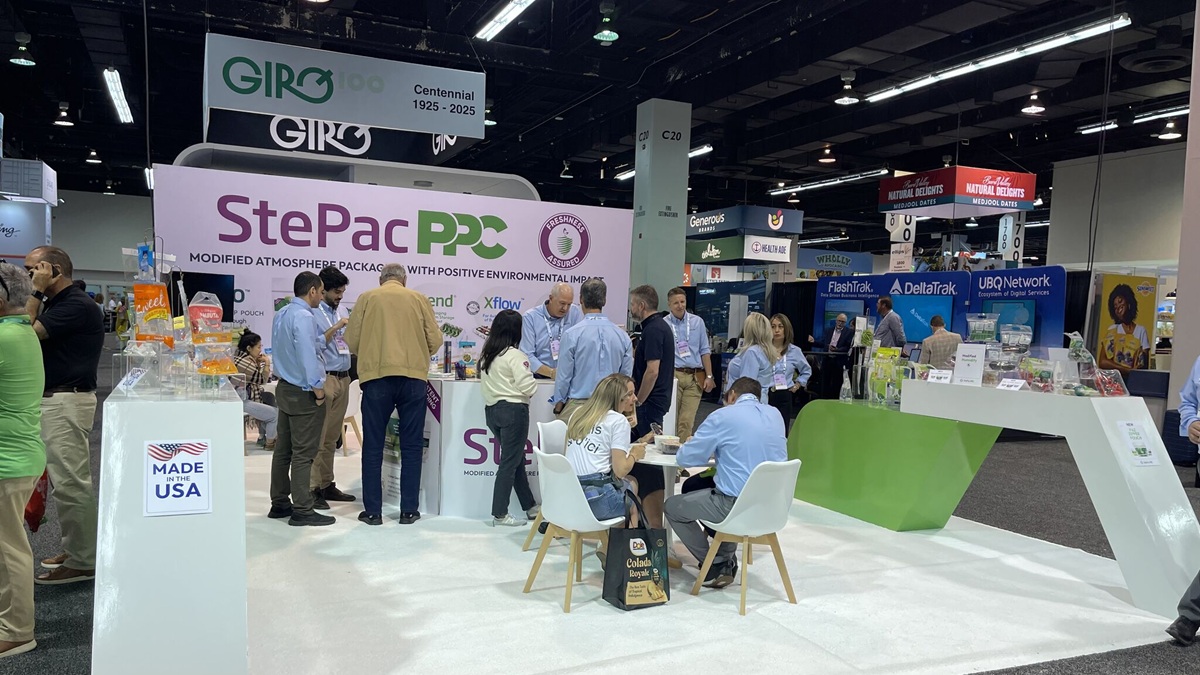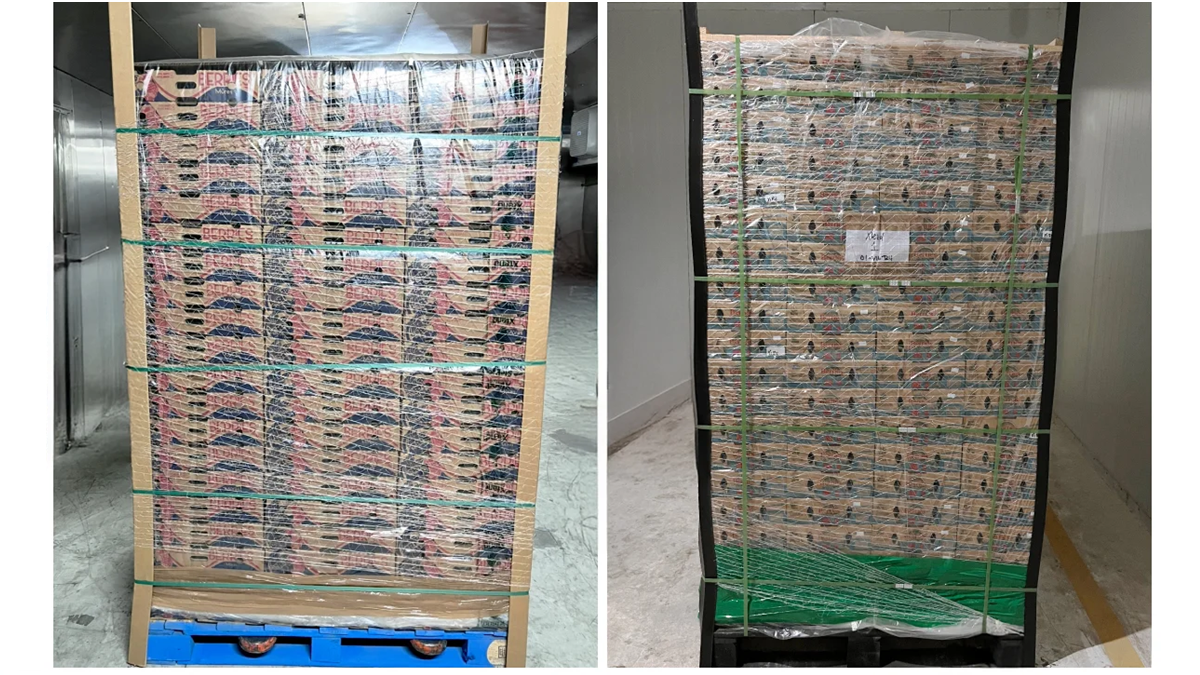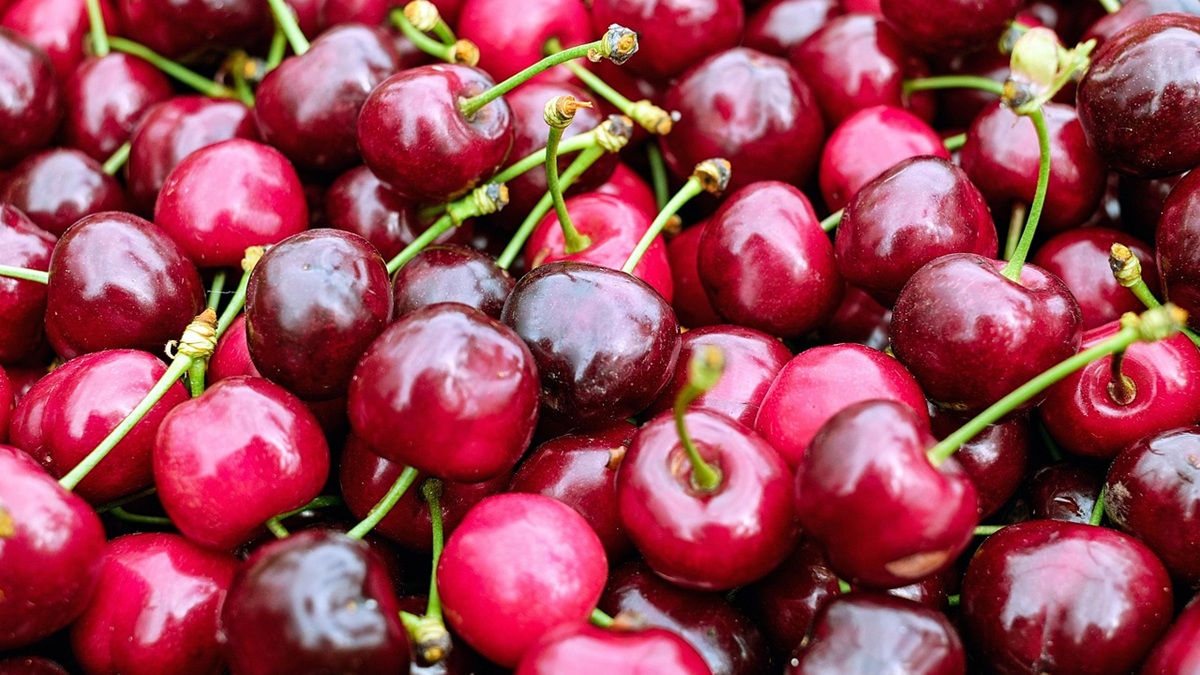Packaging
What the circular economy, food waste reduction and StePacPPC innovative packaging solutions all have in common
Global food waste exceeds 30%, contributing to ~8% of global greenhouse gas emissions. StePacPPC demonstrates that by implementing its packaging solutions, many of which support a circular economy, food wastage and greenhouse gas emissions can be reduced, contributing to a more sustainable future. Here?s how: Balancing Plastic Packaging and Reducing Food Waste Everyone knows that the use of plastic packaging is controversial, with society calling for a reduction in its use. But it is essential to understand that plastic packaging actually plays an integral role in reducing food waste. In fact, ?functional plastic packaging? can even prevent food waste, reducing it to a minimum. The key is making it lean and sustainable. Lean and Sustainable Solutions from StePacPPC
24 May, 2023
Global food waste exceeds 30%, contributing to ~8% of global greenhouse gas emissions. StePacPPC demonstrates that by implementing its packaging solutions, many of which support a circular economy, food wastage and greenhouse gas emissions can be reduced, contributing to a more sustainable future. Heres how:Balancing Plastic Packaging and Reducing Food WasteEveryone knows that the use of plastic packaging is controversial, with society calling for a reduction in its use. But it is essential to understand that plastic packaging actually plays an integral role in reducing food waste. In fact, functional plastic packaging can even prevent food waste, reducing it to a minimum. The key is making it lean and sustainable.Lean and Sustainable Solutions from StePacPPCStePacPPC provides lean and sustainable packaging solutions designed to preserve the quality of fresh produce based on the principles of modified atmosphere, and by doing so, reduce food waste to a minimum. StePacPPC recommends using plastic packaging only if it plays a role in preserving fresh produce quality and has a climate positive effect, i.e., it saves more carbon dioxide emissions than what is created in the lifecycle of the plastic.Xtend® Packaging SolutionsStePacPPCs modified atmosphere packaging solutions are deliberately designed to extend the shelf life of produce such as cucumbers, melons, cherries, blueberries, pomegranates, and more, and by doing so often facilitate season extension, as well as land and sea freight to distant markets.Sustainable shelf-life extension packaging helps lower greenhouse gas (GHG) emissions by reducing waste in the fresh produce supply chain and often facilitating sea transport instead of air transport of produce to distant destinations. The reduction in GHG emissions far exceeds those generated in the lifecycle of the packaging itself. (*) StePacPPC's Wide Range of Sustainable Packaging SolutionsStePacPPC provides its customers with bulk packaging for long-term storage and shipment, including carton liners, bin liners and pallet shrouds under the brand name Xtend®, automated bulk packaging solutions under the brand name Xflow, and retail packaging solutions, including preformed bags and rollstock for flowpack and lidding film/top seal applications under the brand name of Xgo.StePacPPC's Circular Product LineStePacPPCs Circular product line represents a family of packaging solutions that supports a circular economy and includes fully recyclable solutions, packaging that contains chemically recycled content, and compostable solutions. These packaging solutions are printable and available in a range of packaging formats.The fully recyclable solutions are mono-material packaging based on PE, BOPP, and PET that are 100% recyclable. These mono-material films are recycle-ready and can be processed in established mechanical recycling streams for the respective material. They also have low footprint films with 23 -35 micrometer thickness and low-water vapor transmission rate.StePacPPC's Alliance with BASFIn order to support the vision of preserving the quality of fresh produce and supporting a circular economy, StePacPPC has partnered with BASF SE, a European multinational company, to create fresh produce packaging using BASFs Ultramid® Ccycled, a chemically recycled polyamide 6. The chemically recycled polyamide 6 is produced from chemically recycling plastic waste. This is a major step in supporting a circular economy.Ultramid® Ccycled makes up 30% of the packaging material, with options for integration at a higher percentage. The alliance is helping strike a vital balance between creating plastic packaging that is as eco-friendly as possible to keep fresh produce longer through more prudent use of lean plastic films.In short contrary to the controversy surrounding plastic packaging, the right packaging solutions can actually play a critical role in the reduction of food wastage, thereby supporting, and not harming the environment. To learn more about our advanced packaging solutions visit our website: www.stepacppc.com(*) Source: A research study conducted at Wageningen Food & Biobased Research facility, Netherlands Pictures1- Online book Envasado sostenible de frutas y hortalizas 2 - 20 tons of melons 40dt container from Honduras to UK 3 - StePacPPC Supporting Economy Frame 4 - Xgo Circular Passionfruit












